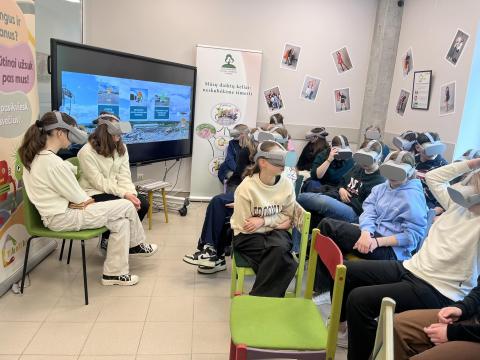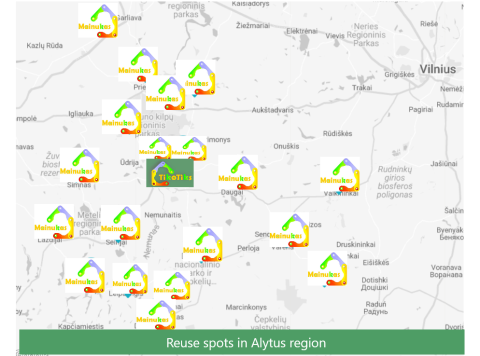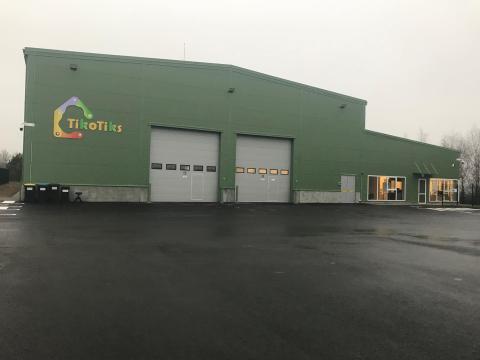Preparation for Reuse System In Alytus Region: TikoTiks and Mainukas reuse spots

About this good practice
In 2018 - 2019, the Alytus region developed a reuse infrastructure as part of the municipal waste management system, which includes 190 direct reuse points Mainukas in every sorting center and 1 preparation for reuse point TikoTiks. Mainukas points are designed to provide direct reuse, where residents can drop off unlimited number of unnecessary items, and others can pick up but no more than five items at once. Additionally, TikoTiks offers preparation for reuse activities, which includes repairing, cleaning, refurbishing items with defects received from Mainukas or directly from residents. These reuse activities are carried out by TikoTiks own staff or in collaboration with craftsmen and donated to charity organization or sold for a minimal fee.
Also, in 2021 started separate collection of textile waste in Alytus region. All collected textile waste goes to TikoTiks. Separated good quality textile is reusing in three ways: transporting to Africa/Asia, washing, ironing, and hanging up for reuse at TikoTiks and forwarding to produce industrial wipes. In response to residents' needs, TikoTiks has set up a small sewing factory where residents' clothes are repaired, or new products are sewn from unwanted textiles. As reuse is strongly linked to waste prevention, TikoTiks offers virtual and creative environmental education activities to develop responsible consumption skills and respect and responsibility towards the environment around us.
Expert opinion
Resources needed
Annually the maintenance of the reuse system costs about 200,000 Eur. The TikoTiks center employs 8 employees, the sorting centers employ 1-2 employees each, who at the same time supervise the reuse spots Mainukas.
Evidence of success
In the Alytus region, reused waste quantity is gradually increasing: in 2020 – 76 t. , in 2021 – 258 t., in 2022 – 530 t , in 2027 estimating to prepare for reuse 1400 t .
Potential for learning or transfer
The general aspect is preparation for reuse integration in regional municipal waste management system with strong social and community engagement and wide promotion of environmental awareness. Reuse, in addition to its direct environmental benefits (saved natural resources and avoided pollution associated with the production of new products), creates strong, albeit indirect, economic, social and environmental benefits. For example, in 2023 residents did not need to buy about 532 tons of items and saved EUR 266,000, and since the start of the full system creation in 2020 – EUR 680,500. Also, 73 tCO2eq (GHG emissions) have been saved by avoiding the production of new products and waste incineration due to reuse, and 150 tCO2eq since the start of the system. Accordingly, the consumption of energy produced from fossil fuels in 2023 has also been saved - 9.3 million MJ eq, since the beginning of the creation of the system - 19.2 million. MJ eq.
Further information
Images
Documents
Good practice_TikoTiks_v2 (002).docx
Website
Good practice owner
You can contact the good practice owner below for more detailed information.



